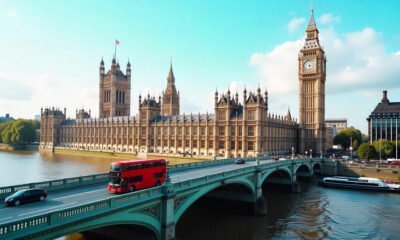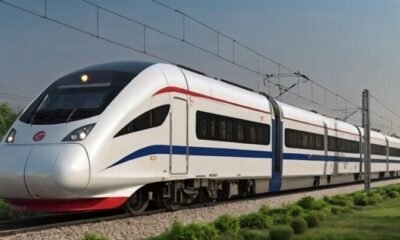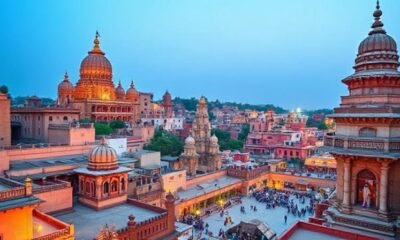Travel Guides & Articles
Delhi Metro Fare Surge Commuters Face Significant Increases Across All Routes with Prices Up to Rs 4 Higher
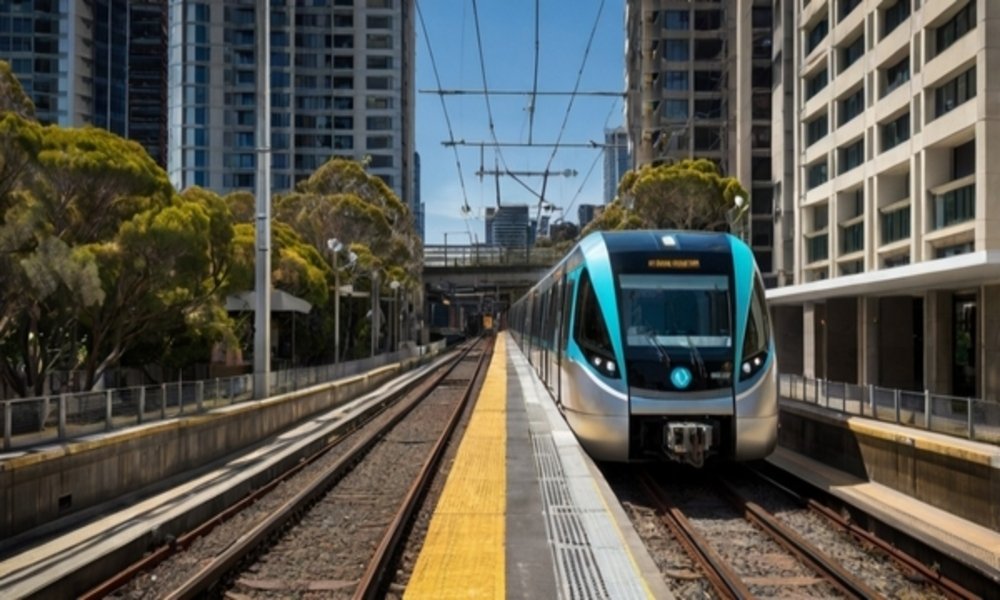
Published on
August 26, 2025
In a move that has caught many commuters by surprise, the Delhi Metro Rail Corporation (DMRC) has announced a fare hike that will affect all metro routes starting this week. The fare increase, which ranges from Rs 1 to Rs 4 depending on the distance traveled, comes as part of ongoing adjustments to the fare structure across the city. While many riders rely on the metro as an affordable and reliable mode of transport, the new changes will increase the cost of daily commuting, leading to mixed reactions from passengers. The hike, averaging a 7.3% increase, has sparked conversations about the balance between keeping fares manageable and maintaining the high standards of service and infrastructure that the metro offers. With the metro system being a lifeline for millions in Delhi, commuters are now left to weigh the benefits of this efficient travel option against the rising costs of using it.
New Delhi – Delhi Metro passengers were caught off guard by a sudden fare increase announced on Monday. The Delhi Metro Rail Corporation (DMRC), through its official social media accounts, revealed that the fare hike would affect all routes, with adjustments based on travel distance. The new rates reflect an increase of up to Rs 4, marking an average rise of 7.3% for both weekdays and Saturdays.
The revised fares now impact shorter journeys, as well as longer routes, across the Delhi Metro network. For commuters traveling on shorter routes of up to 2 kilometers, the fare has risen from Rs 10 to Rs 11. The price for a journey between 2 and 5 kilometers has also gone up, from Rs 20 to Rs 21. Additionally, for trips falling between 5 kilometers and 12 kilometers, the fare will increase to Rs 32, a jump from the previous fare of Rs 30. For routes stretching between 12 kilometers and 21 kilometers, passengers will now pay Rs 43, up from Rs 40 previously.
Interestingly, the fare increase will also be applied on Sundays and during national holidays. For these special days, trips covering distances of up to 5 kilometers will now cost Rs 11, an increase of Rs 1 from the previous fare of Rs 10.
The DMRC has stated that the price revisions are part of ongoing adjustments to fare structures. The announcement has led to mixed reactions among commuters, with some expressing concerns about the added financial burden. This hike comes amidst rising operational costs for the metro system, which is a key mode of transport for millions of daily travelers in the city.
Although the fare hikes may be disappointing for frequent passengers, the DMRC has stressed that these changes are essential to uphold service quality, cover rising operational costs, and support future infrastructure development. infrastructure improvements for future metro expansions.
The timing of this hike has sparked a conversation among Delhi Metro users. Commuters, already grappling with the economic impact of inflation, feel the pinch of another rise in public transport costs.For countless commuters, the metro stands as a cost-effective and dependable choice, offering a stark contrast to the often unpredictable and congested road transportation network.However, the fare hike now adds to the growing list of expenses that Delhi’s urban residents must manage.
On the other hand, the DMRC has defended the fare revision, suggesting that such changes were in line with pre-determined fare structures that had been set based on operational requirements. The corporation has also stated that the hike will not be the last of its kind, hinting at future fare revisions as the metro network continues to grow, and the financial demands of operating the system increase.
In a city where traffic congestion is a daily struggle, the metro remains the lifeline for many. With more routes being planned and expanded, commuters may have to adapt to further fare hikes in the years to come. However, despite the inconvenience, many continue to rely on the metro for its speed, convenience, and ability to bypass the daily traffic chaos.
In the wake of the fare increase, it’s clear that the Delhi Metro is at a crossroads. While there is no immediate relief in sight, the long-term vision of an expanded and more efficient metro network offers hope. For now, however, commuters must adjust to the new fares and weigh the convenience of metro travel against the rising cost of living.
India’s Delhi Metro has raised fares across all routes, with increases ranging from Rs 1 to Rs 4. This hike, averaging a 7.3% rise, aims to balance operational costs while commuters now face higher travel expenses.
As the city continues to evolve, so too will the pricing of its public transport system. Whether the new fare structures will continue to be accepted or spark more public outcry will only become clearer in the coming weeks. For now, it is evident that the DMRC is taking steps to ensure the continued viability and growth of the metro, a key pillar of Delhi’s public transport infrastructure.
Travel Guides & Articles
Good News! South India To Get A Bullet Train Connecting These 4 Major Cities, Announces Andhra CM
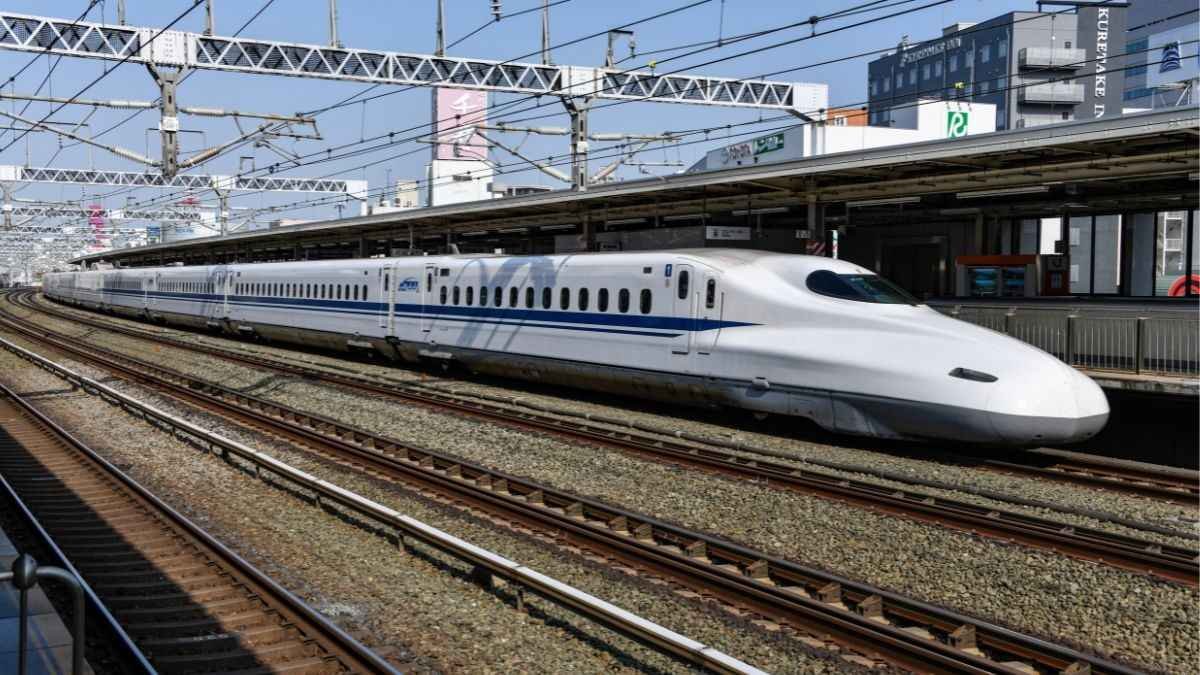
Good news! India is now gearing up to welcome a bullet train in South India. It will connect four major cities and serve nearly five crore people across the region. Andhra Pradesh Chief Minister Chandrababu Naidu announced this major project on Saturday during the India Food Manufacturing Summit. Here’s what we know.
A New Bullet Train Project In South India
India’s first-ever bullet train project between Mumbai and Ahmedabad is already progressing in full swing and is expected to become operational next year. But in a recent development, one more bullet train might be added to the country. As per a report by Times Now, Andhra Pradesh Chief Minister Chandrababu Naidu addressed the India Food Manufacturing Summit on Saturday. He announced that a bullet train is soon going to come to South India.
This major infrastructure project will connect Hyderabad, Chennai, Amravati and Bengaluru. Furthermore, the CM announced that road infrastructure will be upgraded to international standards. These large-scale infrastructure plans aim to transform the region into a major logistical hub.
Also Read: India’s First Bullet Train Update: Stations On Mumbai-Ahmedabad Corridor Nearing Completion
The Project Aimed To Boost Connectivity & Tourism
Reportedly, this bullet train will cater to a population of nearly five crore people across these four major South Indian cities. Chief Minister Chandrababu Naidu also added that a survey has been ordered so people can understand how logistics and transport will improve once the bullet train materialises.
The announcement comes at a significant time as India is already working on its first bullet train project. The Mumbai-Ahmedabad corridor, which spans over 500 km, will feature 12 world-class stations. With this new project announced for South India, connecting Hyderabad, Amravati, Chennai and Bengaluru, travel time between these cities is expected to be cut drastically. Moreover, the project also aims to boost trade, manufacturing and tourism. It will make commuting much easier for millions of passengers.
The South India bullet train project marks a major move in upgrading the country’s transportation system. Surveys are still underway, but if this vision comes to life, the high-speed train will seriously redefine how people travel in the South. What do you think of this initiative? Let us know.
Cover Image Courtesy: Canva Pro/ David Dibert (Representative Image)
For more such snackable content, interesting discoveries and the latest updates on food, travel and experiences in your city, download the Curly Tales App. Download HERE.
First Published: August 31, 2025 12:08 PM
Travel Guides & Articles
Thomas Cook India Partners with Queensland Tourism to Boost Travel

Elevate Your Investing Strategy:
- Take advantage of TipRanks Premium at 50% off! Unlock powerful investing tools, advanced data, and expert analyst insights to help you invest with confidence.
Thomas Cook (India) Limited ( (IN:THOMASCOOK) ) has provided an update.
Thomas Cook (India) Limited and SOTC Travel have signed a long-term strategic MOU with Queensland Tourism to boost travel from India to Queensland, Australia. This collaboration aims to enhance Queensland’s visibility and inspire year-round visitation from India by leveraging Thomas Cook India’s digital platforms and retail network. The MOU will focus on content creation, education, training programs, and joint marketing efforts, positioning Queensland as an ideal destination for various traveler segments. This initiative is expected to expand Thomas Cook’s product portfolio and showcase Queensland’s unique experiences, appealing to multi-generational families, millennials, GenZ, and MICE groups.
More about Thomas Cook (India) Limited
Thomas Cook (India) Limited is a leading omnichannel travel services company in India, offering a range of travel-related services. The company, along with its group company SOTC Travel, focuses on providing leisure, MICE (Meetings, Incentives, Conferences, and Exhibitions), B-leisure, and sports tourism services across India’s metro, mini-metro, and Tier 2 and 3 markets.
Average Trading Volume: 101,683
Technical Sentiment Signal: Buy
Current Market Cap: 83.52B INR
Learn more about THOMASCOOK stock on TipRanks’ Stock Analysis page.
Travel Guides & Articles
PM Modi-Xi Jinping meeting: India and China to resume direct flights after five-year hiatus
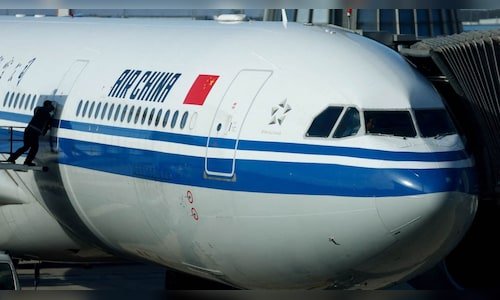
Air travel between the two countries was halted in early 2020 due to the COVID-19 pandemic and further disrupted following the deadly border clash in the Galwan Valley that year. Since then, passengers and cargo have been rerouted via third countries such as Thailand, Singapore, and Hong Kong, adding substantial time and cost to travel and trade.
Indian Prime Minister Narendra Modi confirmed the move on Saturday, a day beforer the Shanghai Cooperation Organisation (SCO) Summit and his meeting with Chinese President Xi Jinping, stating that both governments had agreed to restart direct flight services as relations between the two nations showed signs of improvement. “We are reopening one of Asia’s most important economic corridors,” Modi said, according to reports, adding that the decision would benefit businesses, students, and families across both countries.
Sharing my remarks during meeting with President Xi Jinping. https://t.co/pw1OAMBWdc
— Narendra Modi (@narendramodi) August 31, 2025
Also read | PM Modi meets Xi Jinping in Tianjin as SCO Summit gets underway
Before the suspension, traffic between India and China was considerable. Before the Pandemic in the financial year 2019, over 816,000 passengers travelled between the two nations, with Indian carriers such as Air India and IndiGo operating hundreds of monthly flights alongside Chinese airlines. Cargo movement was also significant, with nearly 30,000 tonnes shipped annually — higher than the cargo volume between India and the US.
The resumption of direct flights is expected to revitalise trade and tourism, as well as support Indian and Chinese companies with firm business ties. For students and professionals who previously relied on complex transit routes, the resumption of direct services will simplify travel and reduce costs.
No official schedule has yet been released, but aviation authorities in both countries are expected to approve routes in the coming weeks. Industry experts predict that carriers will initially resume limited services before expanding based on demand.
The move comes amid broader efforts to stabilise ties between New Delhi and Beijing, with high-level diplomatic engagements resuming and trade volumes gradually recovering. While tensions remain, the restoration of direct air links is being seen as a positive step toward normalising relations.
-
Tools & Platforms3 weeks ago
Building Trust in Military AI Starts with Opening the Black Box – War on the Rocks
-

 Ethics & Policy1 month ago
Ethics & Policy1 month agoSDAIA Supports Saudi Arabia’s Leadership in Shaping Global AI Ethics, Policy, and Research – وكالة الأنباء السعودية
-

 Events & Conferences3 months ago
Events & Conferences3 months agoJourney to 1000 models: Scaling Instagram’s recommendation system
-

 Business2 days ago
Business2 days agoThe Guardian view on Trump and the Fed: independence is no substitute for accountability | Editorial
-

 Jobs & Careers2 months ago
Jobs & Careers2 months agoMumbai-based Perplexity Alternative Has 60k+ Users Without Funding
-

 Funding & Business2 months ago
Funding & Business2 months agoKayak and Expedia race to build AI travel agents that turn social posts into itineraries
-

 Education2 months ago
Education2 months agoVEX Robotics launches AI-powered classroom robotics system
-

 Podcasts & Talks2 months ago
Podcasts & Talks2 months agoHappy 4th of July! 🎆 Made with Veo 3 in Gemini
-

 Podcasts & Talks2 months ago
Podcasts & Talks2 months agoOpenAI 🤝 @teamganassi
-

 Mergers & Acquisitions2 months ago
Mergers & Acquisitions2 months agoDonald Trump suggests US government review subsidies to Elon Musk’s companies




